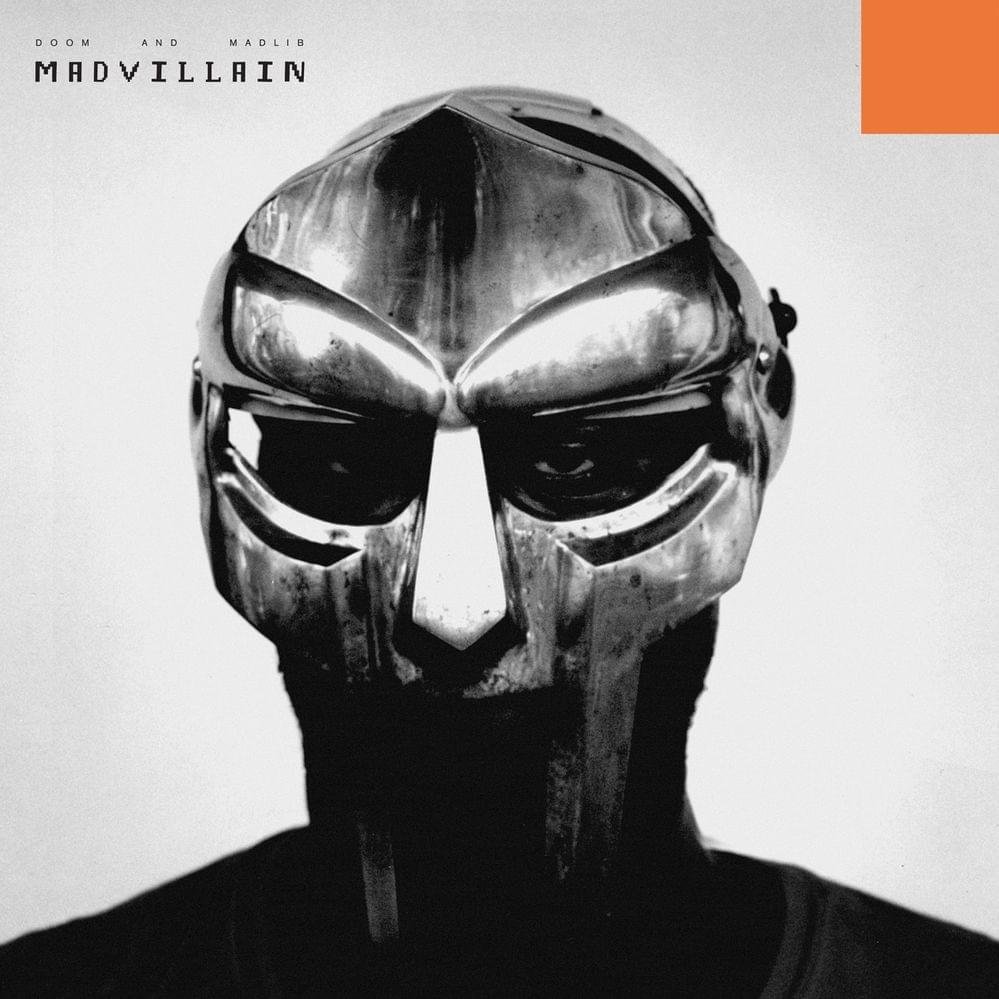Happy 15th Anniversary to MF DOOM’s sixth studio album Born Like This, originally released March 24, 2009.
The late, great Daniel “MF DOOM” Dumile marched through the mid ’00s as a remnant of hip-hop’s early ’90s Golden Age that reinvented himself as a metal mask wearing hip-hop super villain, spouting obscure pop culture references through his drunken slur. But after the release of the tremendous MM.. Food (2004), he went “radio silent” for close to five years, only to unexpectedly resurface with Born Like This, released 15 years ago.
Born Like This was released during a strange time for DOOM. It had been four-and-a-half years since he had released an album and he was rumored to be facing serious health problems. He was also caught in the “DOOMposter” phase of his career (which may have started due to the rumored health issues), where he would send poorly disguised doubles of himself to his scheduled concerts to lip sync on stage. Then Born Like This dropped with little advanced hype, released through the UK-based Lex Records, reportedly to circumvent sample clearance issues.
Born Like This wasn’t as good as Operation: Doomsday (1999) or any of DOOM’s ’03-’04 albums, but it’s still a high quality piece of work. Though the album is cohesive, it’s not quite as focused musically, drawing its musical backdrops from four or five different producers. However, the Villain hadn’t lost a step lyrically, delivering his reliably dense rhymes through his odd stream-of-conscious style, dropping in frequent, almost subliminal, references to his earlier songs.
The album’s centerpiece is “Cellz,” one of the darkest and most menacing entries in DOOM’s discography. The song begins with a sample of famed poet Charles Bukowski reading his apocalyptic “Dinosauria, We,” the poem from which this album takes its title. DOOM samples an episode of The Superfriends cartoon, over which he kicks his bleak rhymes, standing as a metal-faced sentry surveying a ravaged landscape. “Revelations in Braille, respiration inhale, view,” he raps. “Nations fail and shaking of a snake tail make due / Blazing swords trace the haze praise the Lord / Saving Grace, lace your broad, she say she bored.”
The late, great J Dilla produced a pair of tracks on the album. Dilla had passed three years before the album’s release, and rappers were still in the process of blessing his tracks, often taken from beat tapes of his that had been floating around for years, and others cobbled together from his posthumously released Donuts album. Both “Gazillion Ear” and “Lightworks” are high points of Born Like This, but it’s the former, also the album’s lead single, which really shines. DOOM delivers nearly four minutes of lyrics over shifting soundscapes and Dilla’s trademark sirens, rapping “One monkey don’t stop no slaughter / A junkie want to cop a quarter ton, run for the border / Know the drill, it ain’t worth the overkill / Flow skill, still there’s no thrill.”
Listen to the Album:
Though the production line-up is probably more varied than any of his other projects, DOOM arranges the album in a way so that the album moves easily from track to track, even in cases where the subject matter varies almost wildly. On the deceptively smooth “Absolutely,” produced by Madlib, DOOM holds court, providing instructions on how to take down the police and overcome the hostile ruling government. This song flows seamlessly to “Rap Ambush,” where DOOM conducts lyrical warfare, “murderlizing sucker emcees” by blowing them to pieces and rending them limb from limb.
“Rap Ambush” is just one of four tracks produced by the Seattle-based producer Jake One, who produces brief, lyric-focused entries. The subtle “More Rhymin’” is one of the most intriguing musical creations on the album, with its delicate piano loop. Meanwhile “Microwave Mayo” features one of DOOM’s best verses, as he raps, “His own way was strange but it matters not / Tuned into a frequency tone that shattered rock.”
“Angelz” was designed to be a preview of what seemed to destined to be one of the all-time great rapper team-ups” DOOM and the Wally-Champ himself, Ghostface Killah. A collaboration between the Metal Faced Terrorist and Tony Starks, two comic book-obsessed emcees, made too much sense not to happen. After someone gave Ghost a DOOM beat-tape, Grandpa Ghost started recording over a series of MF’s tracks, which appeared on albums like Fishscale (2006) and More Fish (2006). By all reports, the pair began to record an album to be titled Swift and Changeable.
Unfortunately, “Angelz” is one of the scant few songs that the two recorded together that were actually released. It’s never been clear how much of the album they completed, but an unfinished version of the song appears on a compilation by the Nature Sound record label, before the completed version popped up on Born Like This. The DOOM-produced track features a string-heavy loop that sounds like it was lifted from the theme song from a daytime Soap or a Thursday night ’80s drama; truthfully, it was taken from an obscure anime series. Lyrically, Ghost and DOOM are at their most bizarre, spinning stories about crews of gun-toting women, some benevolent and some devious.
Born Like This features one of the longtime hallmarks of DOOM albums: multiple songs that don’t feature the Villain actually rapping, but working behind the boards. The first is “Yessir,” featuring Ghost’s Wu partner-in-crime Raekwon spitting one long verse over the Ultimate Beats and Breaks version of ESG’s “UFO.” He uses a series of unorthodox deliveries and rhyme schemes, rapping “I'm thirsty, hungry like a Somalian / Poly with them n***as with the waves in they dome like tsunami / All we do is get fresh and fuck ma / Probably your baby ma gave me head in Barney’s while I calmly.”
“Still Dope” features Empress Stahhr, a Tennessee-born, Atlanta-based emcee who had frequently collaborated with DOOM. First appearing on tracks with Southern hip-hop artists like Micranots and Prophetix, she made her presence known on Take Me To Your Leader (2003) and MM.. Food. “Still Dope” is her best performance to that point. Over a dense piano and flute heavy loop, she raps, “Provoking and choking, ego stroking is lame / Word bonder than James, four alarm with the flame / Way ahead of the game, still playing the same / Royalty in my veins, it’ll always remain.”
Enjoying this article? Click/tap on the album covers to explore more about MF DOOM:
The album ends with “Supervillainz,” an abbreviated posse cut featuring verses from DOOM’s old Constipated Monkey Mob cohort Kurious, Mobonix, and Minnesota icon Slug as an impromptu Legion of Doom. DOOM’s appearance is brief, delivering only an eight-bar verse, letting the other emcees carry the track, heralding their own villainous deeds. De La Soul’s Posdnuos also appears as “P-Pain,” providing the appropriately ridiculous auto-tuned chorus.
Born Like This became an unintentional swan song for DOOM, as it’s been his last “solo” album that he’s released. His career faced difficulties after he made a trip to England to tour, only to be “stranded” there due to passport issues. DOOM never legally established U.S. citizenship, so he wasn’t allowed back in the country when he tried to return. These unfortunate circumstances resulted in a trail of uncompleted projects, including planned albums with Prince Paul (who provides uncredited vocals throughout Born Like This), Just Blaze, and Pete Rock.
During the final decade of his life, DOOM took up residence in the UK, he’s releasing a few collaborative albums, including Keys To the Kuffs (2012) with producer Jneiro Jarel and two albums with Czarface. He even took on the producer/mentor role by teaming up with Bishop Nehru, an up-and-coming Nanuet, New York emcee, for the Nehruvian DOOM EP. These partnerships have often resulted in damn good music, but it feels like there are entire chapters that are missing from his career.
Despite any issues caused by his stateside absence, Born Like This demonstrates that DOOM had the ability to re-engage after a prolonged hiatus and still put out an excellent album. DOOM always had the innate ability to pull musical greatness effortlessly out of the air, and this project further solidified his legend.
LISTEN:
Editor's note: this anniversary tribute was originally published in 2019 and has since been edited for accuracy and timeliness.





